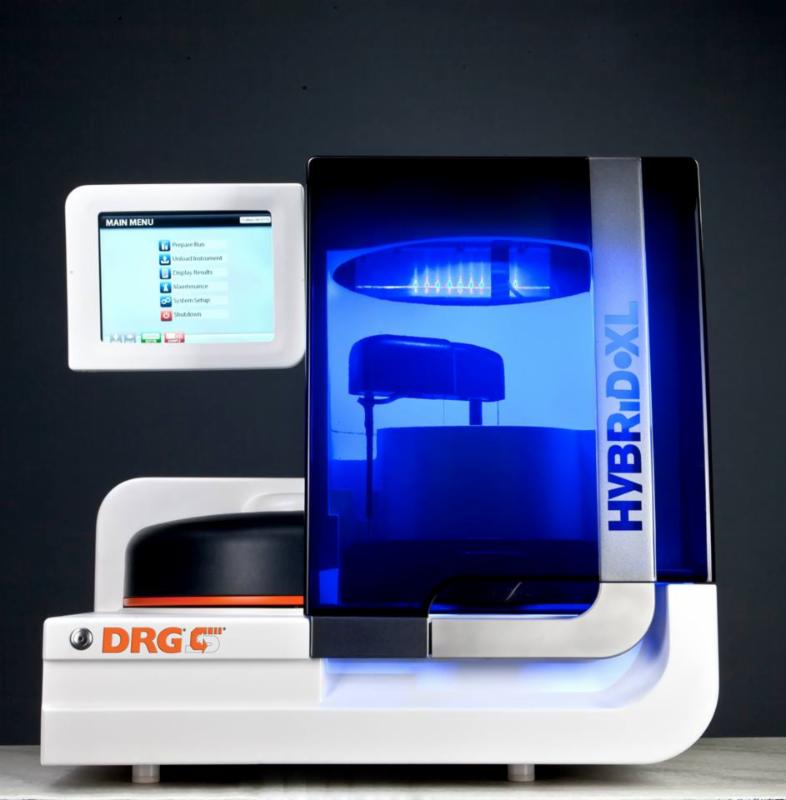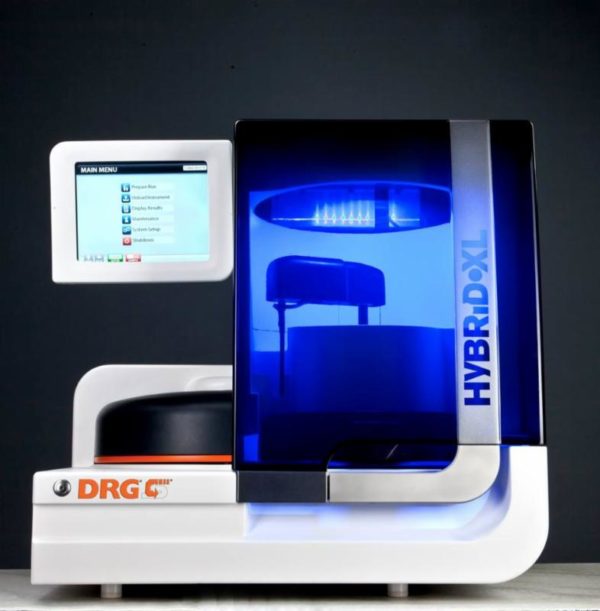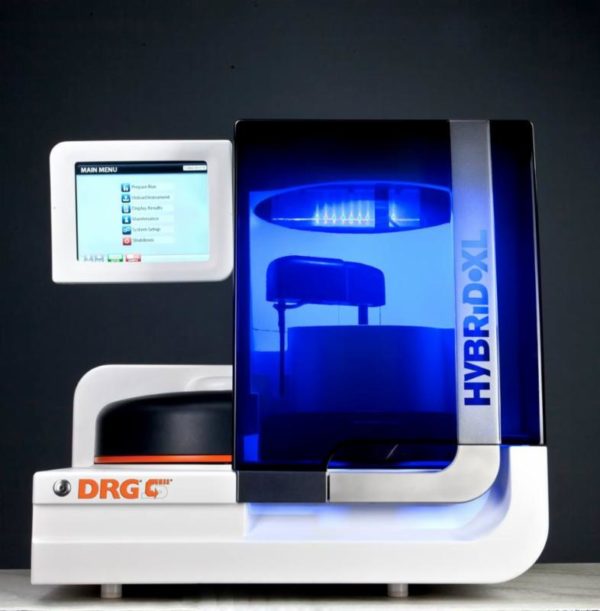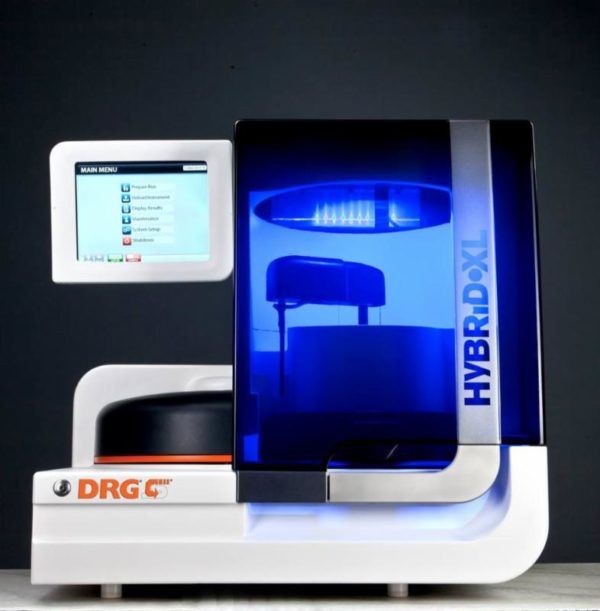Description
The DRG:HYBRiD-XL Cystatin C is an immunoturbidimetric assay for the quantitative in vitro diagnostic measurement of Cystatin C in serum and plasma.
- Only for use with the DRG:HYBRiD-XL Analyzer.Glomerular Filtration Rate (GFR) is a direct marker of renal functions, which starts to decline early in the course of renal diseases. Accurate determination of GFR is required for monitoring the progress of renal diseases when deciding on therapy to avoid impairing the organ function. GFR is determined by measuring the clearance of exogenous substances such as inulin or iohexol, which can freely filter through the glomerular membrane and re-enter the circulation.
- However, their routine measurement is limited for technical, economical and organizational reasons. Determination of creatinine clearance is the most widely used method for non-invasive estimation of GFR in current practice. Serum creatinine is usually considered moderately specific, but of poor sensitivity, as significant increases are only observed if GFR is reduced to 50% or less (creatinine blind range). Creatinine evaluation is influenced by a muscle mass, body surface and flood intake, so it must consider about the age, gender, height and body composition. Creatinine clearance leads to significant overestimation on GFR in case of patients with highly decreased GFR due to tubular secretion.
- The collection of 24-hour- urine is time-consuming and creates additional sources of errors. Cystatin C is a base proteinase inhibitor with a low molecular mass of 13 kDa, and it is produced at a constant rate in all nucleated cells and appears in human plasma and serum. CystatinC is freely filtered through the glomerulus, is not secreted by the tubule or eliminated via any extra-renal route, and is almost completely absorbed and catabolized by proximal tubular cells. Cystatin C is not influenced by acute phase reaction (e.g. Beta2-microgloblin), and not influenced by endogenous or analytical factor (e.g. creatinine or creatinine clearance).
- These advantages make Cystatin C an excellent non-invasive indicator for GFR. Clinical applications of Cystatin C are monitoring GFR in children and elderly patients, assessment of renal transplantation status, monitoring GFR in nephrotoxic drug therapy, and monitoring GFR in acute and chronic kidney diseases including a diabetic nephropathy.
- The DRG:HYBRiD-XL Cystatin C is an immunoturbidimetric assay. Sample reacts with the buffer and anti-Cys C coated latex. The formation of the antibody-antigen complex during the reaction results in an increase in turbidity and the absorbance is measured at 570 nm. The change in absorbance signal is proportional to the amount of cystatin C in the sample. Cystatin C concentration in the sample is determined by comparison with a standard curve.




